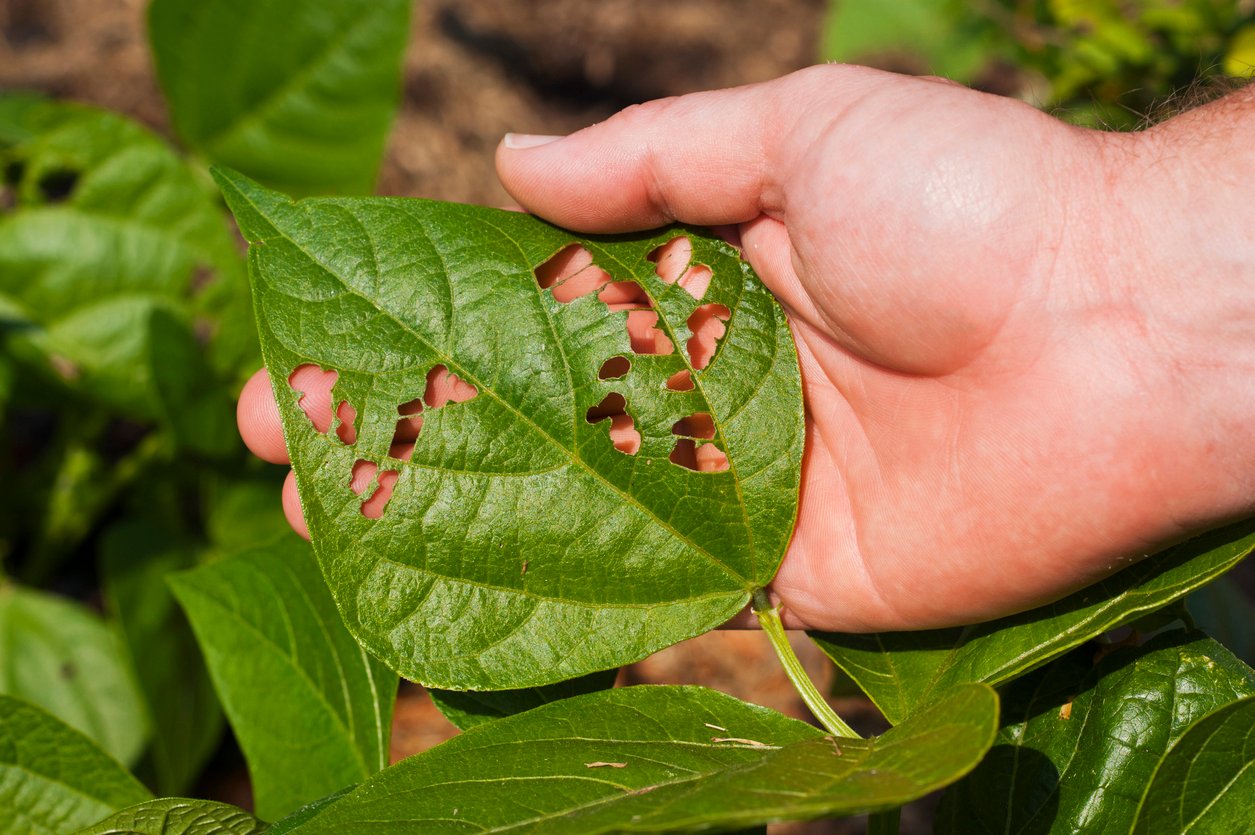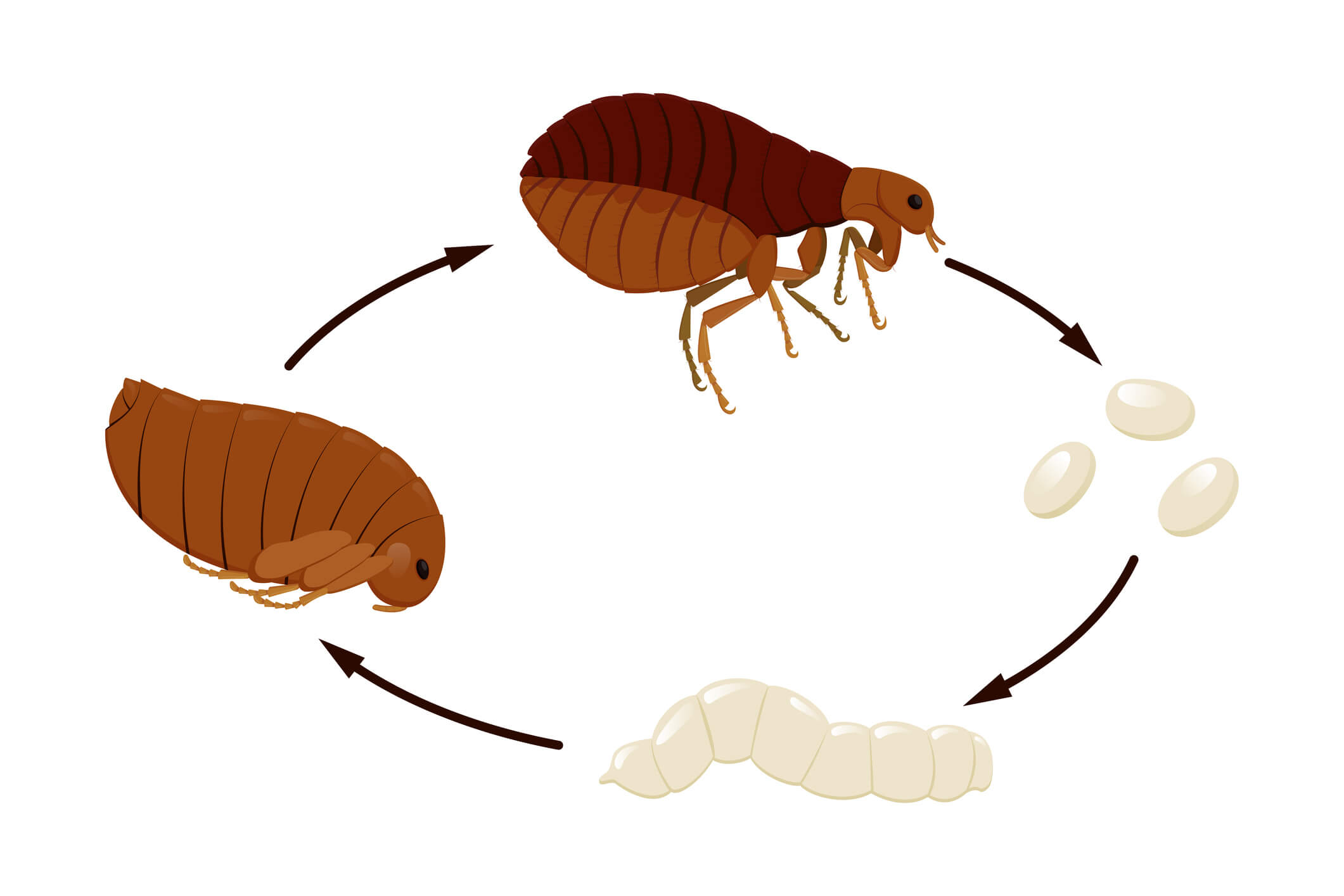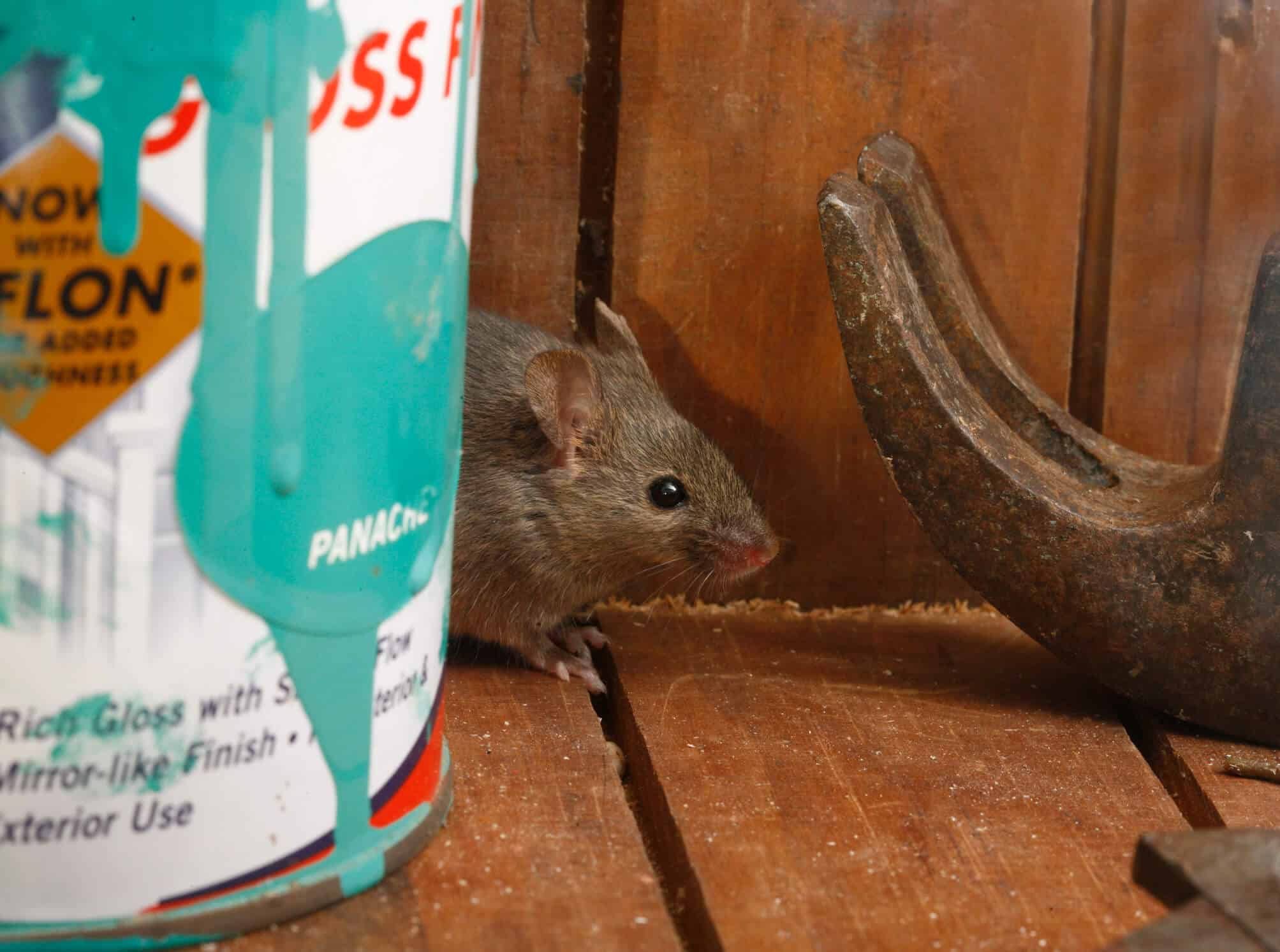How to Help Protect Your Garden from Common Garden Pests

Aphids, caterpillars, slugs, grubs, and rodents are among the most common offenders in home gardens. Because they reproduce fast and spread from plant to plant, small issues often grow quickly into bigger ones. Acting early can make a big difference when it comes to stopping the damage from spreading across your garden.
In this guide, we’ll share practical strategies for protecting your garden from common pests:
- Identify signs of pest activity before problems spread.
- Use natural sprays and biological controls.
- Practice companion planting and trap crops.
- Set up physical barriers and organic protections.
- Maintain good garden hygiene and planting habits.
- Manage mulch and garden layout to reduce pest shelter.
- Know when to call for professional help.
How to Identify Pests in Your Garden
The sooner you catch pest activity, the easier it is to save your plants. Each type of pest or animal leaves its own trail of evidence, and recognizing these signs can help you act quickly and effectively before the damage spreads.
Garden pests often leave clear signs behind:
- Chewed or missing leaves – Irregular holes or ragged edges often point to caterpillars, beetles, or grasshoppers.
- Sticky residue on leaves – A shiny or tacky coating (called honeydew) is left behind by aphids and whiteflies as they feed on plant sap.
- Slime trails – Silvery or glistening trails on leaves, soil, or pots usually mean slugs or snails have been through.
- Wilting or stunted growth – If plants are drooping or not developing as they should, the roots may be under attack by grubs or tunneling pests like voles.
- Cleanly snipped stems or missing seedlings – Rabbits and rodents often leave behind smooth, clipped stems or take entire young plants.
- Discolored or curling leaves – Insects like spider mites or leafhoppers feed by piercing leaves and sucking out the fluids, which disrupts the plant’s ability to transport water and nutrients. This causes yellowing, browning, or twisted leaves.
When you can link the damage to a specific pest, you’ll be able to take more focused, effective action.
Top Ways to Get Rid of Garden Pests
Natural remedies aren’t a cure-all for garden pests, but they can still play a role in keeping activity in check. When used consistently and applied directly to problem areas, these steps may help ease pest activity and complement other preventive measures.
Apply Natural Products & Biocontrols
Many garden pests—such as aphids, mites, caterpillars, and slugs—have soft bodies or delicate outer layers. Unlike insects with hard shells, these pests absorb substances more easily through their skin, making them especially vulnerable to natural sprays and biological treatments.
These methods work by interfering with how pests feed, grow, or reproduce, without harming pollinators or relying on harsh chemicals:
- Garlic spray or soapy water: These household mixtures coat and suffocate soft-bodied pests such as aphids and spider mites. They also act as repellents by making plants less appealing.
- Neem oil: Pressed from the seeds of the neem tree, this natural oil disrupts the hormones pests rely on to grow and reproduce. It’s especially effective when used early against fast-multiplying insects like beetles and caterpillars.
- BT (Bacillus thuringiensis): This naturally occurring bacterium produces proteins that are toxic to caterpillar larvae but safe for people, pets, and helpful pollinators. It’s a great tool for stopping moths before they reach the adult stage.
- Apple cider vinegar: Its strong odor repels ants and aphids, and its acidity discourages some larger pests like rabbits. Spraying it around the base of plants in the evening can also help deter slugs overnight.
Natural pest control methods work best when applied consistently and early, well before infestations get out of hand. These steps can be a practical starting point for gently reducing pest activity and supporting your overall pest management plan.
Practice Companion Planting & Trap Crops
Plants release chemical signals that can either repel or attract pests. Companion planting leverages this natural defense system, while trap crops intentionally divert pests to sacrificial plants, sparing the crops you want to protect.
Strategically grow plants that will help deter pests:
- Marigolds: Their roots and flowers release compounds that reduce aphid reproduction and deter nematodes.
- Nasturtiums: These vibrant flowers act as sacrificial plants by attracting aphids away from tomatoes and other crops.
By arranging your garden strategically, you can create a living barrier system that reduces pest activity while promoting plant diversity and resilience.
Use Physical Barriers
Barriers stop pests before they ever reach your plants. Unlike natural products, they provide around-the-clock protection and typically don’t need frequent reapplication.
Options to consider:
- Row covers and netting: Prevent insects like cabbage butterflies from laying eggs on plants.
- Floating fabric: Shields crops from beetles and leafminers while still allowing light and water penetration.
- Trap crops: Planting sacrificial plants nearby pulls pests away, concentrating them where they can be more easily managed.
Maintain Garden Hygiene & Smart Growing Practices
Decaying plant material, fallen leaves, and fruit on the ground can attract pests into the garden, while wet foliage encourages fungal problems such as mildew and blight. Mulch is a helpful tool for holding moisture and keeping weeds down, but if it’s used incorrectly it can also create problems. Paying attention to these details helps reduce the conditions that allow pests and plant diseases to spread.
Keep garden conditions from favoring pests:
- Remove plant debris and fallen fruit: Clear away last season’s stems, leaves, and fruit to reduce food and shelter for pests and limit fungal growth.
- Water at the soil line: Keeping water off the leaves lowers the risk of fungal growth and avoids attracting moisture-loving insects.
- Build healthy soil: Balanced nutrients and proper pH help plants withstand stress and recover more easily from minor damage.
- Start with strong plants: Choose vigorous seedlings or quality seeds. Weak plants are more likely to fail under pest pressure.
- Monitor mulch depth: Keep mulch layers thin and away from plant stems. Thick or soggy mulch attracts slugs and termites.
- Choose mulch carefully: Wood mulch near foundations can encourage termites and rodents. Alternatives like straw or compost are safer options.
Discourage Rodent Activity
Rodents can cause serious problems in gardens by eating seedlings, chewing stems, digging up roots, and contaminating plants with droppings.
Rodents are attracted to food, water, and shelter, but you can make your garden less appealing to them:
- Inspecting for openings: Check sheds, raised beds, fences, and nearby foundations for small gaps where rodents could squeeze through.
- Sealing entry points: Use exterior caulk for cracks and sturdy hardware cloth or wire mesh to cover larger holes or vents.
- Removing hiding spots: Avoid leaving piles of wood, bags of soil, or unused containers sitting around, since these create cover.
- Using deterrents: Plant peppermint near the garden or apply peppermint oil at likely entry points to help keep rodents away.
Reach Out for Professional Pest Control Services
While the strategies above can help reduce activity, garden pests are often persistent. Populations may rebound quickly, spread faster than DIY methods can manage, or continue hiding at the source. Professional pest control goes beyond surface-level fixes by addressing root causes and preventing future outbreaks. Instead of reacting after damage appears, Moxie’s proactive treatments provide the most reliable path to lasting results.
Professional pest control services bring a level of precision and consistency that’s hard to achieve on your own:
- Accurate identification: It isn’t always obvious which pest is responsible for the damage you’re seeing. A professional can correctly identify the culprit and select treatments that actually work, saving time and frustration.
- Targeted treatments: Rather than treating the whole garden, professionals apply products only where they’re needed. This reduces unnecessary exposure and helps protect the rest of your plants.
- Ongoing support: A one-time fix rarely keeps pests away for good. Professional services include follow-up and prevention plans that stop problems from coming back.
- Treating the source: Pest experts can treat pests at the source, rather than just treating the surface-level issues, which can lead to lasting, consistent results.
Moxie Pest Control: Pest Control You Can Count On
Even with good habits and preventative steps, pests can still be difficult to manage on your own. That’s where Moxie comes in. Our Field Experts combine careful inspections with precise treatments and ongoing support, giving homeowners practical solutions when problems don’t go away easily. To see if we service your area, review our pest control locations.
Why homeowners choose Moxie:
- Thorough inspections inside and out to identify vulnerabilities before pests become a bigger problem
- Local Field Experts trained daily to apply treatments carefully and precisely, targeting pests where they live and breed
- Family- and pet-friendly solutions applied responsibly in accordance with leading best practices
- Unlimited warranty services between visits for customers on a year-round plan, so help is always a phone call away
- Instant online quotes that make it simple to get started
- Quick, easy scheduling that works around your availability
- Neighborly service that prioritizes your comfort and well-being, because we’re passionate about helping you feel at home in your home
Your garden should be a source of joy, not stress. If pests are a problem, Moxie can help keep them under control with service that fits your schedule. Get a free quote today and book a visit at a time that works for you.



